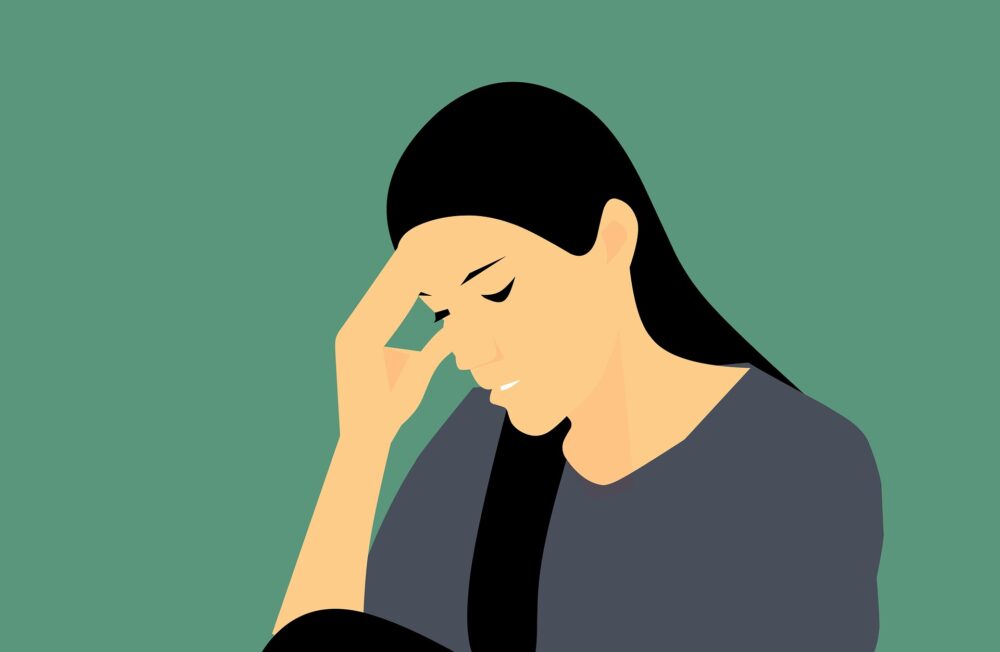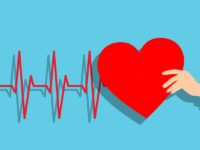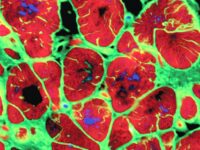Psychosomatic disorders are more simple than they sound. The word “psychosomatic” can be broken into two components: “psycho-,” which means relating to the mind and “-somatic,” relating to the body. In layman’s terms, psychosomatic disorders occur when one’s mental state manifests physical symptoms. Socrates first introduced a semblance of today’s psychosomatic disorders 2500 years ago when he publicly criticized medicine’s strictly organic approach to healing and its complete disregard of emotional and psychological circumstances. Now, the American Psychiatric Association defines psychosomatic disorders as “psychological factors affecting other medical conditions” with severities ranging from mild to extreme.
A 2016 study consisting of 17,525 participants found a strong correlation between the degree of everyday life stress and development of gastric ulcers.
We’ve all likely heard of a psychosomatic disorder at some point in our lives, whether it be mild ones, such as stress-induced migraines, or more severe ones, like phantom limb syndrome. One of the more popular examples is gastric ulcers, or sores that develop on the lining of the esophagus, stomach, or small intestine. While they were incorrectly attributed to stress for centuries until the late-20th century, thanks to the work of Robin Warren and Barry Marshall in 1984, it is now common knowledge that these ulcers are caused by the bacteria Helicobacter pylori. During that year, perhaps in a moment of scientific genius, pure frustration, or maybe a combination of both, Marshall, a research pathologist, downed an infectious soup with a nefarious ingredient: the infamous H. pylori. He would not only go on to develop symptoms of gastritis and peptic ulcer disease, but he would also eventually go on to win a 2005 Nobel Prize in Physiology or Medicine with Warren for their contributions to medical research.
Though scientists now advocate for an allopathic, drug-based treatment for stomach ulcers to target H. pylori, recent studies have shown that there is some truth to the stress-induced gastric ulcer myth. A 2016 study consisting of 17,525 participants found a strong correlation between the degree of everyday life stress and development of gastric ulcers. In the lowest stress group, only approximately 0.4 percent of participants were diagnosed with peptic ulcers in comparison to an incidence rate of 1.2 percent in the highest stress group, after evaluating other factors such as age, gender, socioeconomic status, NSAID use, and tobacco use.
When the body’s immune system functions are suppressed, pathogens are more likely to successfully infiltrate and infect it.
This may explain why there was a 21-year gap between the publication of Warren and Marshall’s findings and their eventual Nobel Prize nomination and acceptance. A majority of the scientific community held steadfast in their belief of the physical manifestation of psychosocial ails, and they were not entirely wrong in doing so. In fact, in recent years, there has been a growing community of clinical researchers who advocate for a holistic treatment process that reviews both the patient’s physical and mental health. Over the course of several decades, many researchers have offered varying explanations as to why this manifestation of physical symptoms in response to mental duress occurs. These include theories and concepts such as Hans Selye’s general adaptation syndrome, which theorizes three stages in human response to prolonged stress: the alarm reaction, the stage of resistance, and the stage of exhaustion. Tissue catabolism or hypoglycemia are typical symptoms that arise during the alarm reaction, which is when the body first detects higher levels of stress hormones such as cortisol. These symptoms typically disappear during the stage of resistance but eventually return in the stage of exhaustion if stress is prolonged. Once the body is in the stage of exhaustion, even more hormones like catecholamines, which include norepinephrine and epinephrine, and opioids that have immune-suppressing properties, are detected. When the body’s immune system functions are suppressed, pathogens are more likely to successfully infiltrate and infect it.
As the medical community moves closer to a holistic treatment protocol investigating both the physical and psychological duress of patients, research likewise is evolving to consider the disproportionate rates of psychosomatic afflictions in people from historically marginalized and disadvantaged backgrounds. Though there still is a long way to go in psychosomatic disorder research, Socrates would be proud that his revolutionary assertions 2500 years ago have taken root in modern society.
BMC Gastroenterology (2016). DOI: 10.1186/s12876-016-0554-9
American Psychiatric Association (2013). DOI: 10.1176/appi.books.9780890425596.dsm05
American Journal of Medicine (1948). DOI: 10.1016/0002-9343(48)90166-1
Psychosomatics (1979). DOI: 10.1016/S0033-3182(79)70827-9
British Medical Journal (1950). DOI: 10.1136%2Fbmj.1.4667.1383
EXCLI Journal (2017). DOI: 10.17179%2Fexcli2017-480






